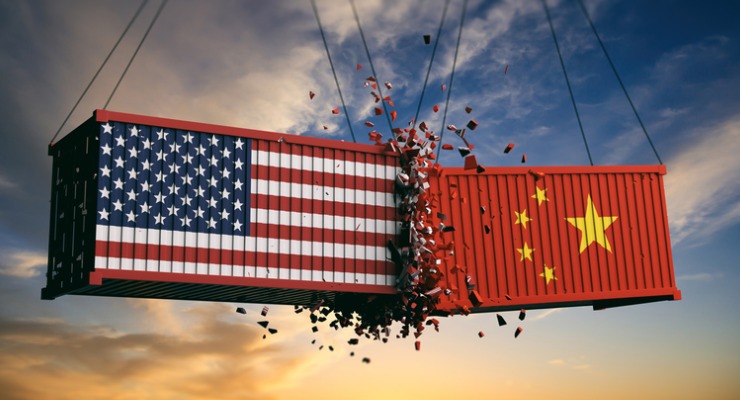
Two of the world’s economic powerhouses have played tit for tat for over a year now and there’s still no end in sight for this trade war. As our biggest trading partner, China, and our greatest ally, America, battle it out, Australia anxiously awaits the fallout to our economy. Find out what the trade war means for Australia – the good, the bad and the ugly.
What is the US China Trade War?
The Trade War started with US President Trump accusing the Chinese government of unfair trading practices and theft of intellectual property. For months, Trump threatened to impose tariffs on imported Chinese goods if the practices didn’t improve.
In July 2018 the increased tariffs began with 30% on washing machines and 20% on solar panels coming into the US. There have now been four rounds of tariffs introduced, totalling more than $360 billion on Chinese goods.
The US President also hopes that by making Chinese goods more expensive through heavy taxes, American goods will become more competitive. China has retaliated imposing tariffs of 5% - 25% on US goods. US crude oil had a 5% tariff placed on it for the first time.
In early September 2019, the US imposed a 15% tax on approximately $166 billion dollars of consumer goods, such as clothing, shoes and sporting goods. More tariffs are being planned by both sides before the end of 2019. Neither President Trump or China’s President Xi Jinping seem willing to back down but trade teams from both countries are talking.
The trade war is having a big impact on China. The Chinese government has cut taxes to boost its slowing economy.
The Chinese economy grew 6.6% in 2018, the slowest rate since 1990. Some economists believe Beijing is inflating those numbers and suspect actual growth is as low as 5.6%. China’s exports to the US have decreased by 7% in the first five months of this year.
Impact of the Trade War on Australia
While the trade war doesn’t change the cost of goods Australia imports or exports, the effects of the trade war are being felt here. Here’s how the trade war is actually impacting Australia.
The Good
Potential for Increased Exports
With China and the US imposing tariffs on each other, it opens the door for Australian businesses to supply goods. Australian goods may be cheaper than the now heavily taxed Chinese or US goods. President Trump has accused the Chinese government of cancelling agricultural orders the US usually supplies. New trade opportunities are great for the Australian economy in the short and long-term.
Paying for Chinese Goods
In August 2019, the yuan fell below 7.15 per dollar - its lowest in 11 years. President Trump accused the Chinese government of manipulating its currency as a counter to the US tariffs. But for Australian importers, a poor Chinese currency is good news. It makes Chinese-made goods cheaper to import.
The Bad
ASX Movements
The earliest sign of the impact of simmering tensions was a fall in the ASX. Most stock exchanges in the world have seen some up and down movement since the trade war began.
Most adult Australians have exposure to the market either through direct share ownership or through their superannuation. Movement in share prices makes the public nervous and consumer confidence erodes leading to reduced spending.
Australian Economy
Trade relations don’t get much closer than China and Australia. We rely heavily on each other – China for our iron ore and Australia for their manufactured goods. If China’s growth slows, it doesn’t need as much of Australia’s resources and our economy is already growing at its slowest rate since the GFC. We recorded growth of just 0.5% in the June quarter.
The Ugly
Potential for Worldwide Recession
If the Chinese economy slows, so does the rest of the world which could start a worldwide recession. According to Morgan Stanley, a recession is likely if the US raises tariffs to 25% on all Chinese goods for four to six months.
It’s not only Australia that depends on exports to China to keep the economy ticking over.
Some Asian economies that sell to China, including Taiwan, Korea, Singapore, Malaysia and Vietnam, are already feeling the effects of the trade war and face a bleak future.
During global recessions growth slows, jobs are lost and governments need to stimulate their economies. A worldwide recession usually takes several years to recover from. The world economy is still recovering from the 2009 recession.
What’s Next?
Both China and the US have made threats to roll out new tariffs and increase existing duties in the next coming months.
Treasurer Josh Frydenberg believes the Australian economy is currently fine. Despite the domestic and international challenges the economy is facing. Australia should recognise that the escalation of the trade war is a concern, but for now should see the many opportunities in it for Australia.
If you have any queries about importing goods from China to Australia, contact Vara Allied on (08) 6115 0118 or contact us online.